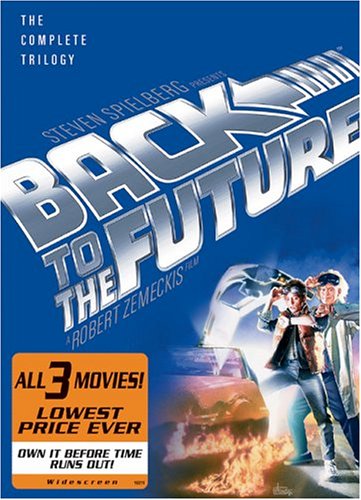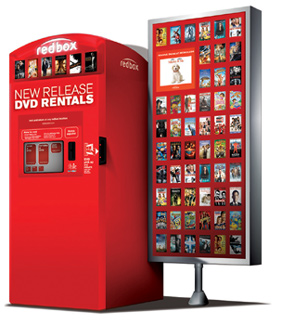The End of Blockbuster and the Insular Tech Press.
By yukoasho 0 Comments
Blockbuster recently announced the closure of all its remaining US retail outlets, as well as their by-mail rental service, by the end of the year. It's a bittersweet end to what was once one of the most important names in the home entertainment video. Unsurprisingly, many media talking heads have laid the credit exclusively at the feet of digital distribution, failing to see the full range of issues that doomed Blockbuster to the position they ended up in.
Now, I want to be clear, I'm not discounting the rise of digital services, especially the all-you-can-eat juggernaut Netflix. However, this was only one of many issues that Blockbuster failed to address.
Now, first and foremost, Blockbuster was shit to go and rent at. Particularly in the late nineties and into the 2000s, Blockbuster had become more and more dirty and unattractive, with movies getting harder and harder to find on store shelves, usually due to not being placed properly. This was mostly because the concept of customer service had been forgotten by Blockbuster seemingly immediately after they pushed all the smaller rental stores out of business. Hell, Netflix was founded by a guy who'd gotten fed up with Blockbuster's legendarily stupid late fees. Not only that, but true to their name, it was not that easy to find anything that wasn't a blockbuster, which we'll talk about later. Put simply, they beat the competition and then proceeded to get all kinds of lazy. Sounds familiar....

Second, the movies got cheaper. I mentioned the lack of variety in the last paragraph, but this is where it really started hurting them. When DVD hit mainstream at around 2000, it was a format designed with user purchase in mind. Even back around the PS2 launch, it wasn't unusual to see new releases at $25-$30, and that price got cheaper and cheaper to the point where new releases on DVD are $15-$20 nowadays. When Blockbuster came up, it wasn't unusual for a new release movie to be around $50-$100, due to the cost of producing VHS tapes. Now, what does this have to do with the variety at Blockbuster being an issue? See, back in those days, people would go from store to store looking for the movie they wanted. It wasn't unusual for people to have BB accounts at more than one location (as the stores weren't networked, another service fail). Fun story; as a young gal, I actually walked half a day to a Blockbuster several neighborhoods away, looking to rent The Professional: Golgo 13, back when I was really into anime. With the advent of DVD, it became easier to just go to Best Buy or Wal-Mart or what have you and just buy a fucking copy of that less-than-blockbuster movie you wanted to see with the crew over the weekend. The cheapening of movies would not only make purchase of movies a viable idea for the first time since CED, but would also give rise to new competition...

This was the next pillar in the fall of Blockbuster. Even before streaming, Netflix began eating Blockbuster's lunch with their fantastic rent-by-mail service. Instead of having to deal with getting reamed by Blockbuster late fees and not being able to find the movie you wanted half the damned time, you just ordered a movie from their catalog, got it in the mail moderately quickly, and sent it back when you were done with it to get the next film in your queue. In their hubris, Blockbuster dismissed Netflix as a passing fad. It wasn't, and the money made by Netflix's mail-order business funded the streaming service we know and love today. Then there was the automated kiosk, which was pioneered by Redbox. I'm sure you've seen these little bastards everywhere at this point: a red box (thus the name) with a bunch of movies/games in it that can be rented for a buck a day, and even if they don't have the movie you're looking for in one kiosk, it's entirely possible they can have it in another one just a stone's throw away. Seriously, I don't know about you, but 'round here they're all over the place. I have one in my grocery store, my drugstore, the local Wal-Mart, and a few places I'm sure I've forgotten. Because DVDs are cheap and compact, the cost of having a Redbox in your establishment are minimal. As with online streaming, Blockbuster ignored the threat posed by mail-order renting and automated kiosks until Netflix and Redbox had snatched up huge swaths of their market share.
In reality, the writing on the wall was written for Blockbuster before online streaming even became as large as it is now. Between lack of variety, poor service, and cheap ass DVDs, the chain had no way of surviving into the 21st century. Indeed, that it lasted into the 2010s is little short of a miracle, despite the fact that there's still a thriving disc rental market. Had Blockbuster simply been more agile, we wouldn't be having this discussion.
Now, what does this have to do with gaming?

There's this narrative, spun by corporate types with a vested interest in taking away ownership rights (along with their fanboys), that digital will completely replace physical distribution in gaming, rather than co-existing the way it does with both movies and music. This ignores the one fundamental truth of the consumer market: different people want different things. Just as not every gamer plays the same games, not every gamer plays - or buys - them the same way. Broadband penetration is still a joke in parts of the US, to say nothing of the world at large, and ideological disputes over DRM will persist for the foreseeable future, and the attitudes consumers will have will by and large vary from person to person. The console market clearly didn't approve of the all-or-nothing mandate Microsoft had initially proposed for the Xbone, but going digital will appeal to probably as many people as it revolts. Options are everything, and those who provide the most options will be king, simply by virtue of being able to appeal to the broadest amount of people for a sustained period of time.
Make no mistake; the time of monolithic, dictatorial retail is over. However, it's not being replaced by monolithic, dictatorial digital distribution. It's being replaced by a cornucopia of choices, both online and off, catering to a consumer base that is becoming more diverse rather than less. The company that makes the most consumers the most comfortable will be the winner. That company was not Blockbuster, and it won't be any company that believes they can make one size fit all.